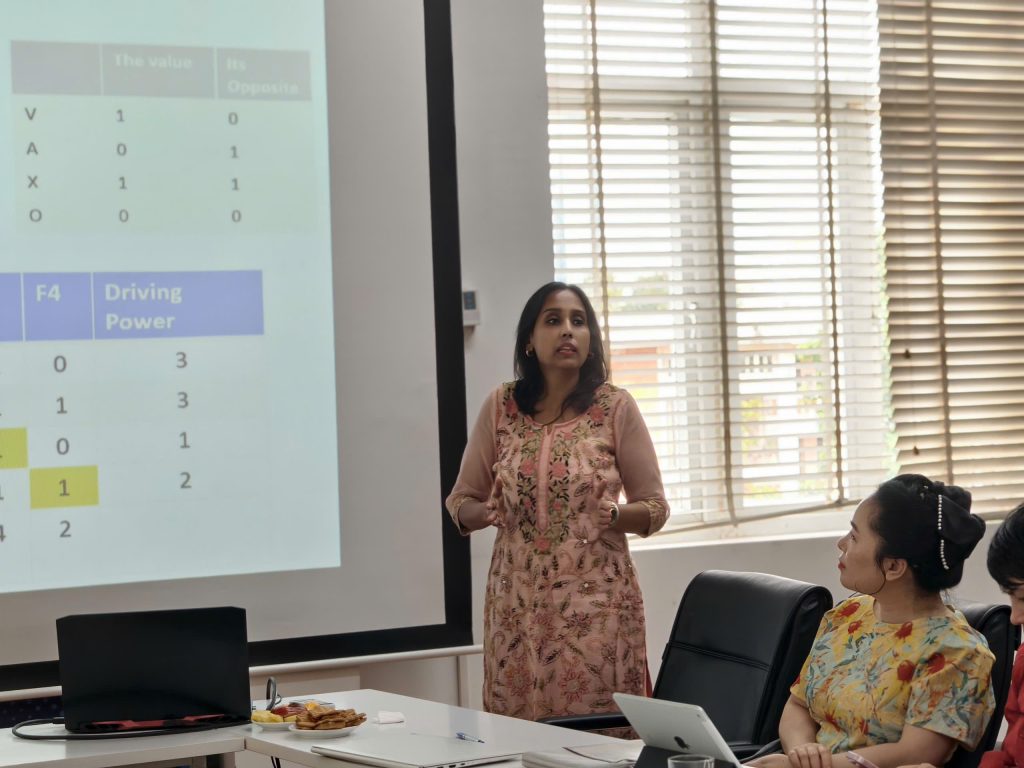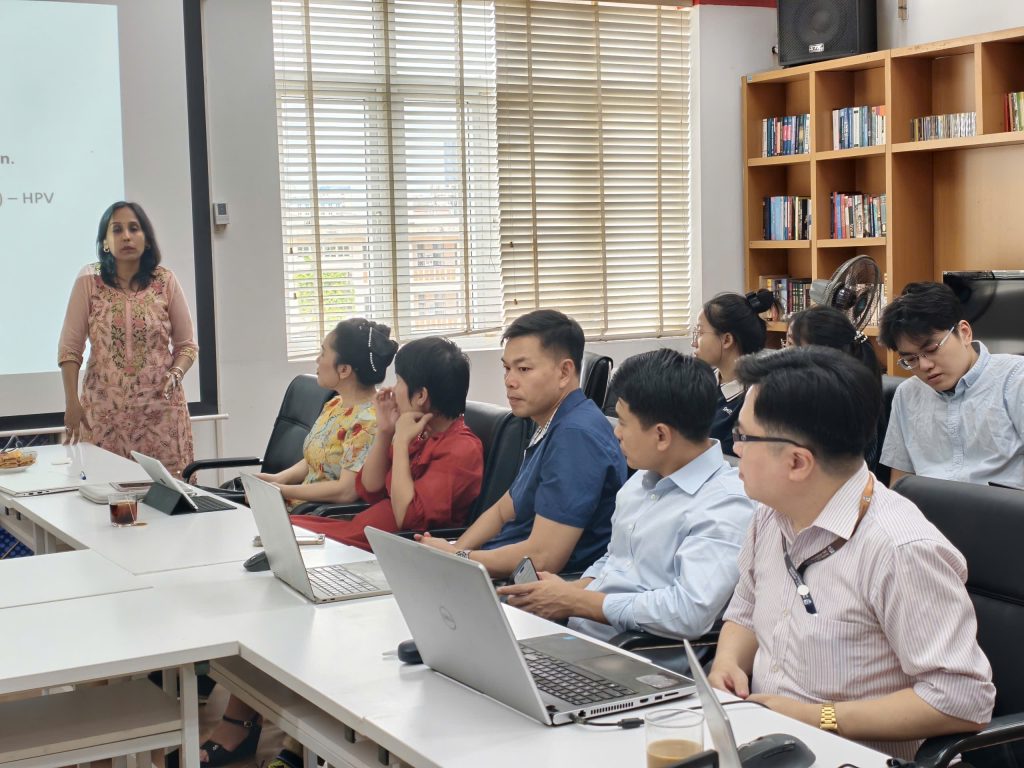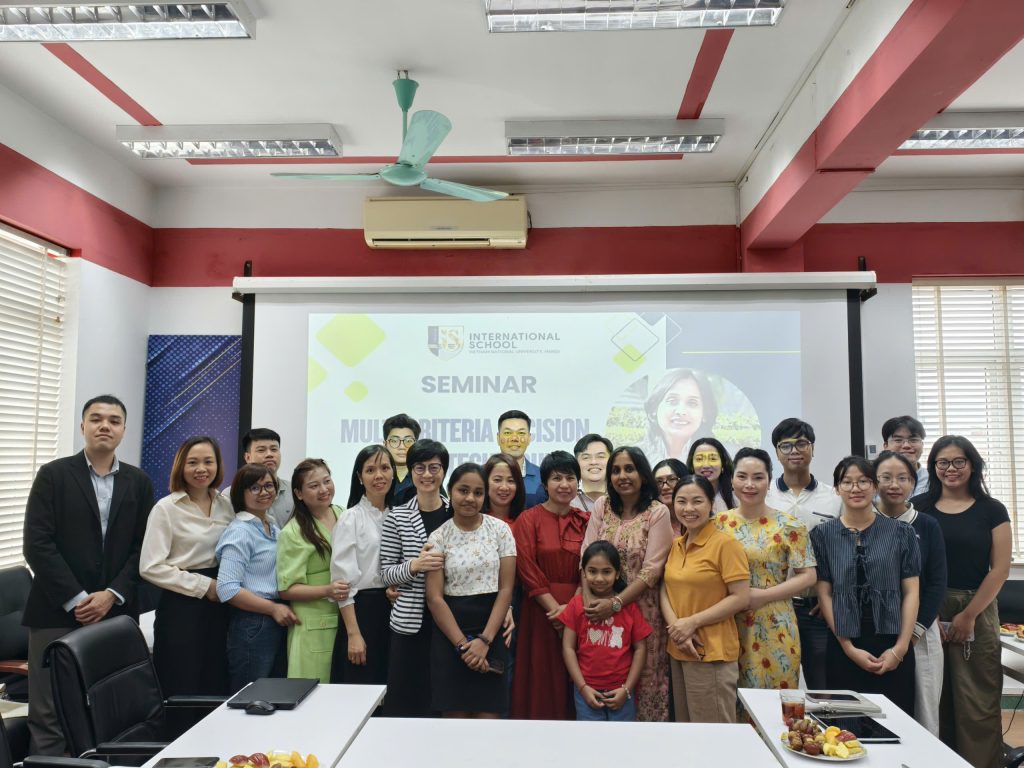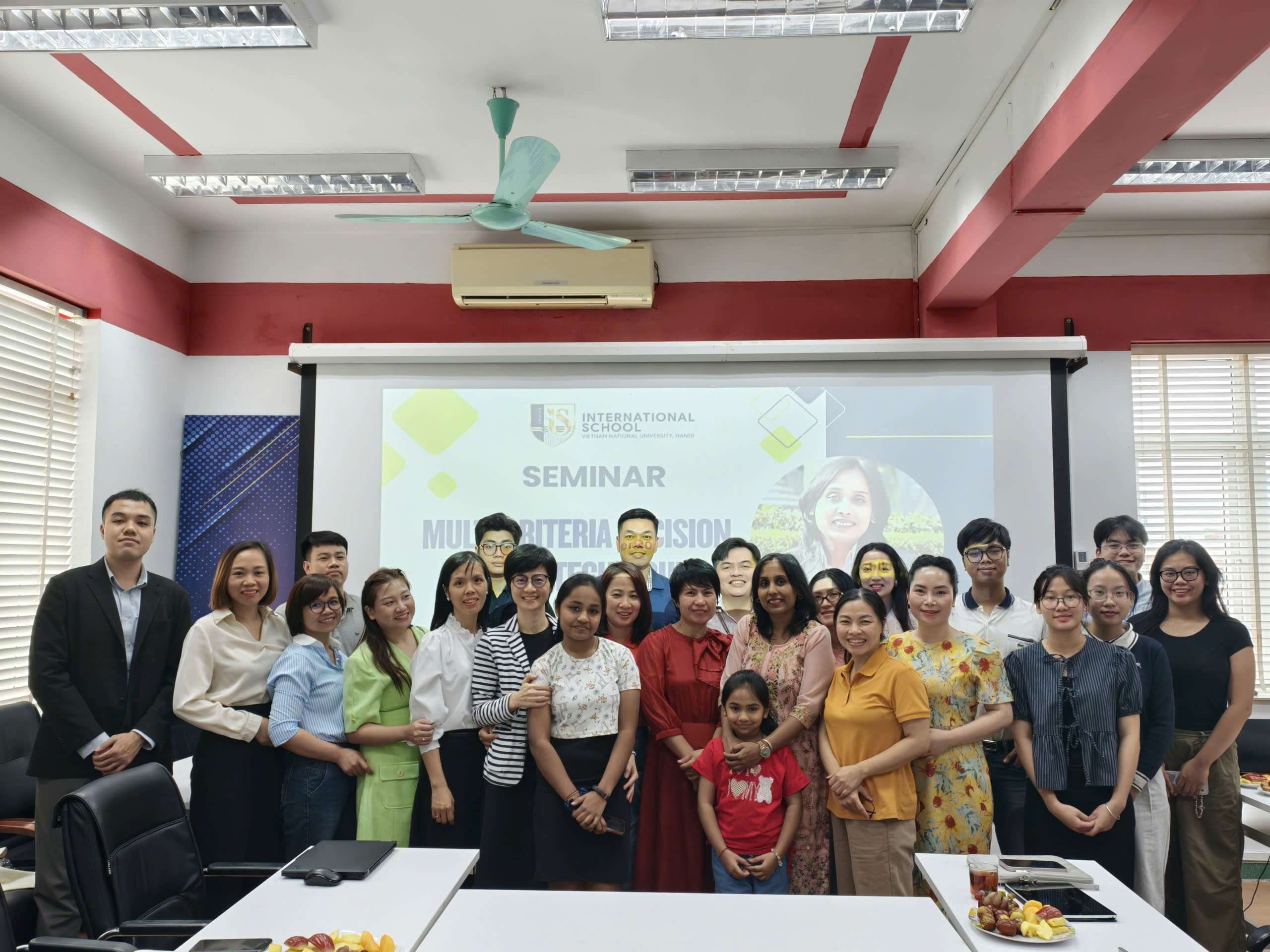Hanoi, October 22nd 2025. Continuing its efforts to foster global academic excellency, the International School – Vietnam National University, Hanoi (VNU-IS), presented the next installment in its specialized workshop series on advanced research methodologies.
The session delivered by Dr. Shikha Daga from University of Delhi, India provided students and faculty with an intensive exploration of Multi-Criteria Decision Making (MCDM) Techniques , a vital set of tools for navigating the non-linear, interdependent challenges of modern policy and business.

The lecture focused on the powerful methodological combination of Total Interpretive Structural Modeling (TISM) and MICMAC Analysis. This duo is indispensable for researchers seeking to move beyond simplistic cause-and-effect models. TISM is designed to build a structured, hierarchical framework that maps the interpretive relationships between multiple elements within a complex system. Complementing this, MICMAC classifies these factors into critical categories: driving variables, which are the fundamental levers for change, and dependent variables, which are the resulting outcomes. By pinpointing these core drivers, researchers gain crucial insights for impactful intervention and strategic decision-making.

The academic exchange during the session was notably rigorous and highly participatory. Both VNU-IS students and faculty members engaged actively with the methodology, posing sharp, context-specific questions on how TISM and MICMAC could be applied to real-world issues like supply chain optimization and local policy effectiveness. This dynamic atmosphere of intellectual curiosity fostered a genuine dialogue between the visiting scholar and the VNU-IS community, highlighting the high level of scholarly preparedness and critical thinking present in the university’s academic cohort.
This rigorous exposure to TISM-MICMAC equips VNU-IS students and lecturers with the advanced analytical capacity necessary to conduct high-impact research. The practical applications demonstrated, such as modeling the complex interdependencies among corporate barriers to ESG Reporting Adoption and drivers for a Circular Economy, directly enhance the intellectual value for the university community.

The commitment of the Faculty of Economics and Management and the VNU-IS leadership is evident in their strategic approach to fostering a nurturing academic environment that emphasizes advanced methodological training. The facilitation of high-level exchanges with esteemed international scholars serves as a direct demonstration of the University’s dedication to international cooperation and its mission to elevate the scholarly rigor of its faculty and students. This investment, particularly through the application of these powerful analytical tools to assess UN Sustainable Development Goal (SDG) implementation, strongly reaffirms VNU-IS’s role as a regional leader in driving sustainable development through academic excellence.
Nguyen Tra My
Faculty of Economics and Management


